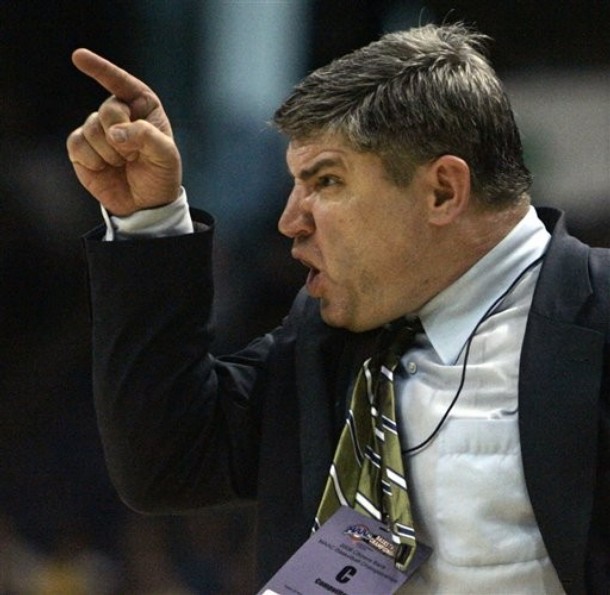
 Here's the secret about communication with coaches in the high school level (and any level for that matter) -- they want to be heard. That's it.
Here's the secret about communication with coaches in the high school level (and any level for that matter) -- they want to be heard. That's it.In talking with coaches, the number one complaint they have is that officials won't listen.
Now...this could be about not listening about "being more consistent," or it could be about "calling it both ways," or it could be about "safety of the players," or it could be about "a missed call." Whatever the case, he wants to get his point across.
To best explain my point, I am going to tell you about a situation I had that occurred last night in a high school game. I won't tell you who it involved, because I want to make a VERY CONCERTED effort to make sure there is no "mud slinging" on this blog.
Situation: Late in the 2nd period, about 20 seconds left, I blew the whistle after 3-4 players were "scrumming" along the boards, refusing to move the puck, refusing to give body position on each other, and, eventually, the attacking player fell on the puck. As I was in the process of blowing the whistle, the defending player gave the attacking player two shots in a cross checking motion to the player on the ice.
I called no penalty (which I still believe was OK -- this was a very intense, up-and-down game, with a lot of great plays and a lot of passion. To me, this penalty did not (a) affect play, nor did it (b) make it into the category of player safety). The coach did not agree...
** I AM NOT IN FAVOR OF COACH-BASHING THAT A LOT OF OFFICIALS PARTAKE IN...SOME GUYS LOVE TO RIP ON COACHES, THINKING THEY ARE ALL STUPID, DON'T KNOW THE RULES, AND SHOULD KEEP THEIR MOUTH'S SHUT.**
There is a difference between a coach and a donkey. 99% of high school coaches are coaches - they coach because they love the game (their salaries, if calculated out to an hourly wage, would be about $0.25/hour!). Coach's I will work with...Donkey's on the other hand....
Back to the game...
At the end of the period, both teams exit the ice at a common exit, and coaches walk across the ice to get to the locker room. The coach was upset. He wanted a cross check call on the play. He came over to me and started yelling about it. I could see that he didn't want to "talk", so I asked him, "Coach, did you come over to yell at me then walk away, or do you want to talk?"
He kept on yelling...
I asked him again, "Coach, did you want to come over and yell at me and then walk away, or do you want to hear my explanation?"
He kept on yelling...
I then told him, "If you are going to keep on yelling, I am going to walk away."
I walked (skated) away.
Now, I had positive feelings that this was the correct call for the game. At the time, the time of game, it was a good 'no call'. However, this is not about judgment or making the correct call, this is about communicating with coaches. My communication with him was not what I wanted.
I made up my mind that I was going to pull him aside before the start of the 3rd period, calmly talk him, and "make peace."
As an official, this is what separates the average from the great -- you need to be "man enough" to go over and talk to coaches, even when its not ideal. Here are the reasons why I thought this was very important:
1. He got the best of me with that yelling match. As an official, I need to have the final say for credibility.
2. He knew that I did not listen to him -- number 1 complaint of high school coaches.
3. I needed to let him know I am still in charge of the game.
I went over to the bench before the 3rd period and said this verbatim,
"Coach...should I have called that cross check??? (I just gave a shrug of my shoulders). I understand your point and I wanted you to know that. I also wanted you to know that in this game, my priority for penalties is to get the big one's that affect play." (now I shut up).
He said in return, "And my priority is the safety of my players. It's nothing personal."
I said, "Fair enough," and skated to my position.
That's communication. That's what the average guy won't do -- the average guy will avoid the coach for the rest of the game.






No comments:
Post a Comment